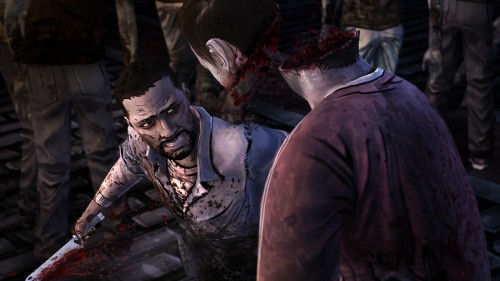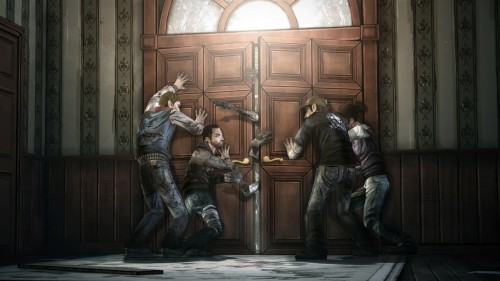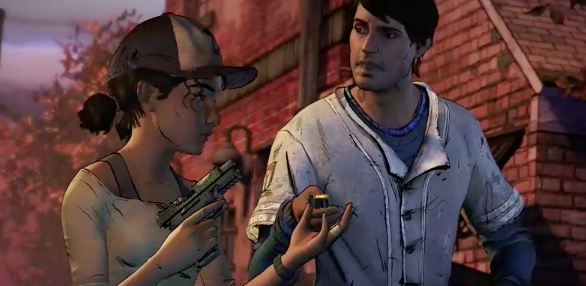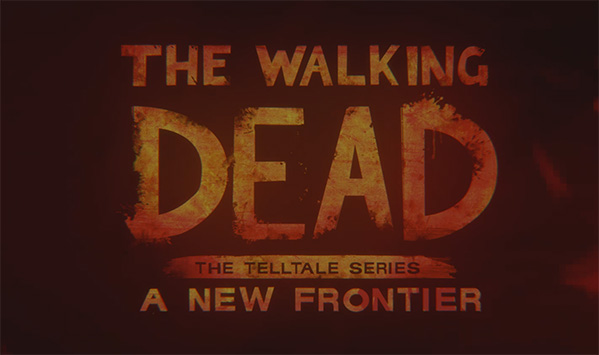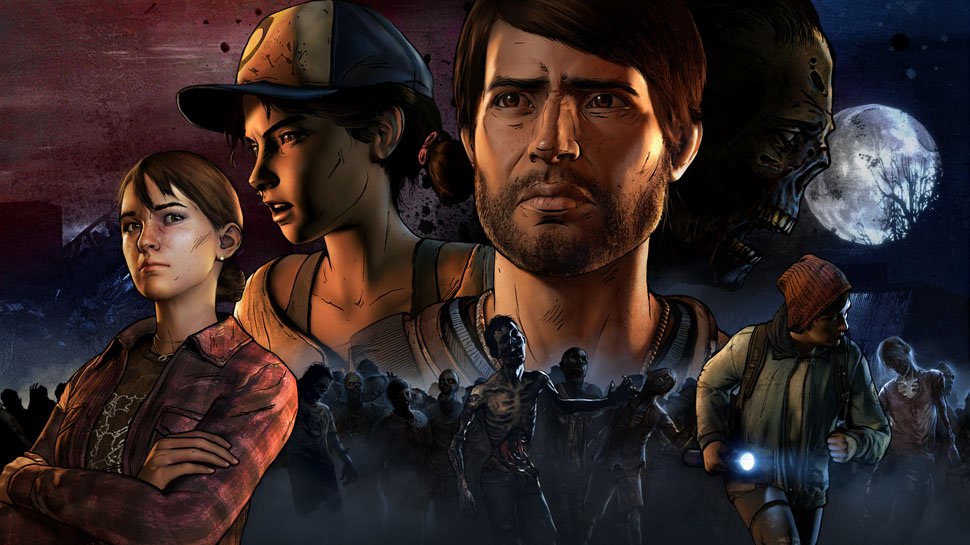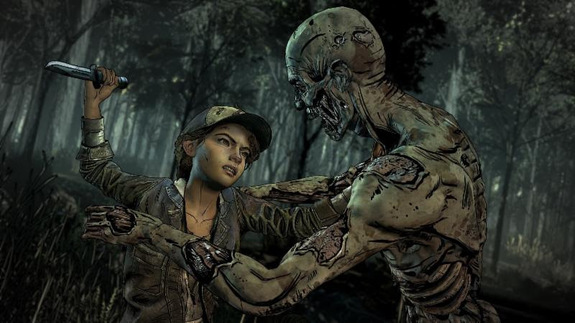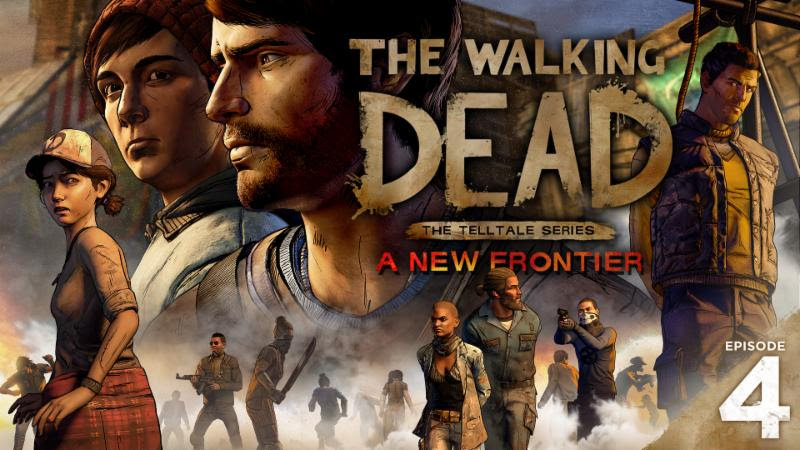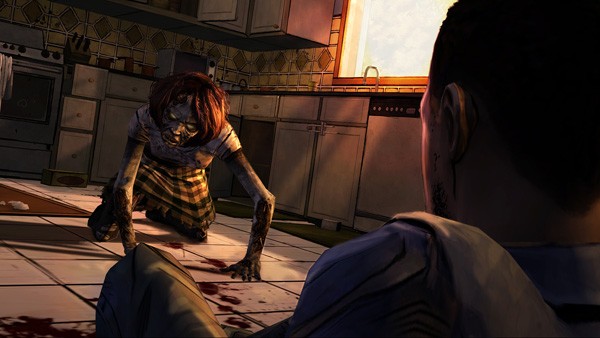
We’re finally at the end of Telltale’s foray into the world of The Walking Dead, although another season is promised for some future date. It’s essentially been Telltale’s strongest release to date, with an excellent story on par with the comic and television show’s high standard, integrated with a gameplay experience that has favoured atmosphere and tension of interactivity. Hard decisions have been made, and now it’s time to see them all play out in No Time Left.
After being bitten by a walker in the last episode, Lee is running out of time to save Clementine, kidnapped by a stranger. The episode covers his journey through Savannah, to the hotel where she’s being kept and to face the man who took her.
The finale is not quite the epic experience you might have been expecting. There’s no giant monster rampage like Sam & Max, or a T-Rex chase on a harbour like Jurassic Park. While there is plenty of zombie action, No Time Left is more concerned with the smaller, deeper moments. The strongest scene simply features two men, sitting in a room, with one holding a gun.
Since you’re exploring Savannah once more, there aren’t a bundle of new locations on offer – although most returning areas are given a different perspective or spin. Once again, there are a bundle of difficult decisions you’re required to make, the first and possibly hardest one occuring within the first ten minutes of the game. There are also many dialogue choices which you are informed characters will ‘remember’, even if you don’t see them again for the rest of the episode, possibly meaning they will affect the game’s second season.
However, not much of No Time Left seems to be affected by past choices. The events don’t seem to change depending on your past actions, and there are sometimes visible ways the game guides you back onto its predetermined path. Rather, this episode is most concerned with confronting you with your decisions. Your choices are remembered, and at times read back to you, so you do feel that this is the culmination of the entire experience. The way the game ends is moving, and certainly matches the tone of the series. The world of The Walking Dead is cruel, dark, and very few ever make it out alive, and this episode is dripping this atmosphere from every pore.
This episode is perhaps the clearest example of the series’ linear design. While past episodes would feature puzzles that would require you to combine objects, or search for a way out, they were never a focus. They’re not really even a feature, this time around. Almost every setback you experience has an obvious solution, and many sequences in the game simply require you to walk forward. There is one major action sequence featuring the zombie horde, but it’s extremely easy, though also very satisfying.
Now that the series has finished, we can look back and see how this design has worked, and I wouldn’t say that the minimal interactivity in The Walking Dead has been a bad thing. The decision seems to have been made to keep the focus on the story and atmosphere, which are well crafted enough to prop up the entire game. It’s a very stripped down adventure experience, and while it works wonderfully in No Time Left and the rest of the series, with lesser material the invisible hands guiding you would be a lot more obvious.
There’s not much to say about the game’s presentation that hasn’t already been said, but I will say that the way certain scenes in the game are framed and directed are very film-like, and are all the more dramatic for it. The quality of the dialogue and visuals could easily be translated to screen, yet there is no need to given the skill they’re presented with here.
No Time Left is a great summation and ending of The Walking Dead series. It favours its story and characters over gameplay, but these are so strong that the gameplay almost becomes irrelevant after a while. It’s a unique experience, and one that I would encourage all zombie and adventure game fans to try out. It’s definitely the most interesting game Telltale have put out there, and I not only look forward to a second season, but to where else the company chooses to take their games from here.
Still some tough decisions | Appropriate dramatic ending
Linearity of the design is never more clear than in this episode

